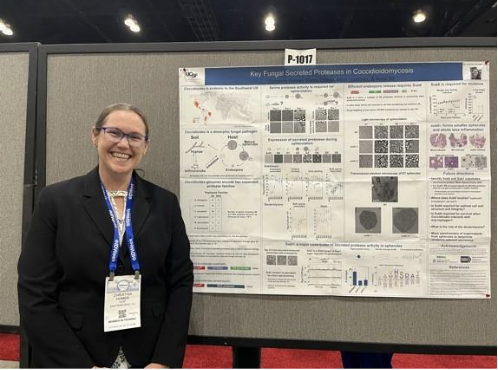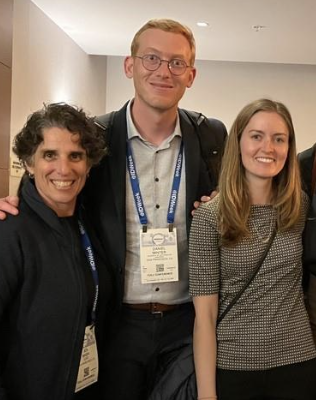Transplant ID Track
 The UCSF Transplant ID (TID) track is a specialized training program embedded within UCSF ID fellowship that provides subspecialty training in the field of Transplant & Immunocompromised ID. The goals of our program are to provide in-depth and comprehensive training as well as individualized mentorship to fellows pursuing careers in the field of TID.
The UCSF Transplant ID (TID) track is a specialized training program embedded within UCSF ID fellowship that provides subspecialty training in the field of Transplant & Immunocompromised ID. The goals of our program are to provide in-depth and comprehensive training as well as individualized mentorship to fellows pursuing careers in the field of TID.
 UCSF Medical Center performs a high volume of solid-organ and hematopoietic stem cell transplantations/CAR-T each year, providing our trainees with a broad range of clinical experiences. Fellows in the TID track rotate on the inpatient TID consult services, care for patients in TID clinic, and rotate on non-ID transplant teams. In addition to their clinical experiences, fellows have specialized didactics and participate in non-clinical transplant related activities (including protocol development, selection meetings, pretransplant evaluations, TID related research, and participation at national conferences).
UCSF Medical Center performs a high volume of solid-organ and hematopoietic stem cell transplantations/CAR-T each year, providing our trainees with a broad range of clinical experiences. Fellows in the TID track rotate on the inpatient TID consult services, care for patients in TID clinic, and rotate on non-ID transplant teams. In addition to their clinical experiences, fellows have specialized didactics and participate in non-clinical transplant related activities (including protocol development, selection meetings, pretransplant evaluations, TID related research, and participation at national conferences).
Interested fellows can complete the TID track as part of either the 2-year Clinician Educator track or 3-year Research track. Fellows enter the track after completing their first year of training and complete the track requirements (see below) as a supplement to the General ID Fellowship training.
| Track Requirements | Details |
|---|---|
|
Clinical Time |
Inpatient Transplant Service Time (≥6 months total) |
|
Hands-on Transplant |
Weekly Transplant ID meeting |
|
Lab Training |
Mycology/Mycobacteria Lab |
|
Didactics |
Clinical case discussions |
|
QI/Practice-based |
Mentored Transplant ID QI project |
|
Meetings |
IDWeek |
Track Directors

Monica Fung, MD MPH
Clinical Director
Transplant/Immunocompromised Host ID Program

Dan Minter, MD
